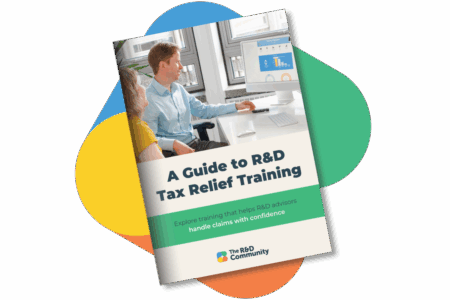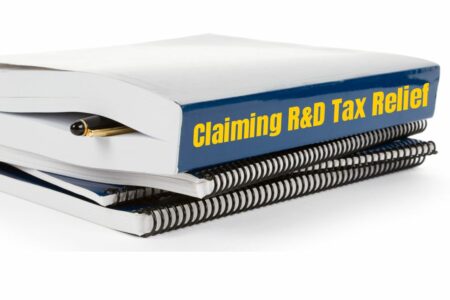Sadly, the experience of dealing with HMRC these days is rather different. Many accountants and consultants now find their approach difficult, inconsistent and not at all helpful.
There are good reasons behind HMRC’s shift in approach, but it has impacted how easily you can ask for help and support when making a claim. Let’s look at what you can do to navigate these (sometimes) choppy waters.
How it started
Introduced in 2000, the SME R&D tax relief scheme was intended to increase technological innovation in the UK economy. In 2002, the scheme for larger companies was introduced. We now refer to that as the Research and Development Expenditure Credit scheme, or RDEC.
By 2006, R&D specialist units had been established in Cardiff, Cambridge, Croydon, Leicester, Manchester, Maidstone, and Portsmouth. The units were initially set up to provide guidance and support to businesses making claims. At the time, R&D tax relief was a relatively new concept. Many businesses were unsure how to make a claim and few knew if they were even eligible.
Expansion and growth
As awareness of the tax relief grew, more companies started to benefit. The inspectors and staff in the specialist units encouraged the use of the relief. They went out of their way to help claimants prepare good quality claims. Each unit had its own helpline and it wasn’t unusual to be on first name terms with the inspectors. It was also easy to contact HMRC, either by phone or email, to discuss a claim.
Ultimately, the units were focused on helping businesses navigate a claim. They would guide applicants through definitions, scheme eligibility criteria, the types of activities that could be claimed for, and the documentation needed.
If honest mistakes were made they could be openly discussed and corrected. Penalties did exist but they were rare, as HMRC generally approached applicants with rationality and in the spirit of cooperation.
How it’s going
If you’ve prepared an R&D tax relief claim in the last 12-18 months, you’ll have noticed HMRC’s service levels have changed quite a bit. It’s been reported the department has lost a significant number of highly qualified staff between 2016 and 2022.
Now, with fewer trained and qualified staff, they’re struggling to deal with an increase in claims. What’s more, in the past few years, there’s been an increase in fraud in R&D claims. Dealing with that has put further pressure on their performance levels.
HMRC have responded by recruiting new staff. However, in a House of Lords report published earlier this year, HMRC were criticised for failing to meet their own Charter. It was reported that some new staff lacked adequate training and the necessary experience to effectively deal with applicants’ claims.
It’s good to know HMRC’s service level guidance is still set out at CIRD80525. While this refers to Specialist R&D Units, CIRD80350 no longer publishes their contact details. Instead, only a centralised email address is given – RD.IncentivesReliefs@hmrc.gov.uk
This centralised approach makes it very difficult to liaise with any one officer or receive the support referred to in those guidelines.
Overall, the quality of HMRC’s service is a multifaceted issue that is going to take time to address.
So, where can accountants and consultants go for help?
The responsibility of accountants and consultants working in the industry is to deliver best practice. It’s why a number of professionals opt for the specialist training offered via accountancy providers. However, this tends to be geared towards meeting professional development (CPD) requirements. As such, it often lacks more complex material on how to comply with HMRC’s highly detailed specifications.
A firm or consultancy’s normally high standards can be significantly impacted by lack of access to specialist R&D knowledge and experience. At best, having the right help and support means that claims are prepared on a sound basis and are processed promptly. At worst, the claim process is frustrating, time-consuming and impacts the relationship you have built with your client.
The R&D tax relief scheme is our bread and butter – we know it inside out
The right training and correct knowledge of HMRC’s requirements is key to achieving compliance within R&D tax relief. The scheme was complex enough even with dedicated, experienced inspectors. Now, with HMRC grappling with staff shortages, issues with fraud and a continued rise in applications, it can feel like claims are actively discouraged, rather than supported.
That’s why we’ve built up a bank of resources and training courses centred around a community of professionals just like you. So you can learn, apply and refine your knowledge in a space designed to help you succeed.
The R&D Community offers:
- Accessible, approachable and responsive support
- Authoritative advice on all things R&D – we do this day in, day out.
- A community of members who have similar questions or issues and who, like you, want to be able to confidently advise their clients on R&D tax relief.
To learn more about why a community of like minded individuals can dramatically improve your knowledge of the R&D world, read our article: “How Community Can Benefit R&D Advisors in 2023” or get in touch with any questions.





